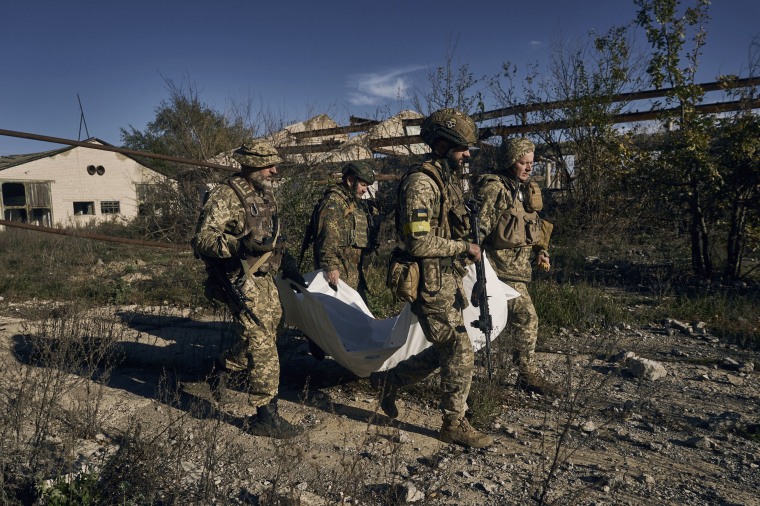President Vladimir Putin announced Wednesday that Russia would impose martial law in the four regions in Ukraine he illegally annexed last month as his military struggles to maintain its grip on territory amid Ukrainian advances.
“Now we need to formalize this regime within the framework of Russian legislation. Therefore, I signed a decree on the introduction of martial law in these four subjects of the Russian Federation,” he said on national television.
Speaking to his Security Council, Putin announced the immediate declaration of martial law in Kherson, Zaporizhzhia, Luhansk and Donetsk, as well as the establishment of a new state coordination council aimed at fulfilling the objectives of his so-called special military operation.
Last month, the four regions held controversial referendums on whether to join Russia, which the international community and Ukraine widely criticized as illegitimate. Some residents alleged that they were intimidated or otherwise forced into voting and that the outcome of the vote was ordained.
Despite the criticisms, Putin went ahead with the formal annexation of the four regions at the end of September.
Putin also signed an order Wednesday introducing new measures to Crimea, Belgorod, Voronezh, Kursk, Rostov and other regions bordering Ukraine. Several of the regions, which have been important staging areas for Russia’s fight in Ukraine, have come under increasing Ukrainian fire in recent weeks.
The order allows for unspecified economic mobilization in the regions, and it seemingly lays the groundwork to organize residents to support the military and security services. Much about the measures is vague, giving the state more legal room to maneuver.
Intense week of combat
Putin's made his announcement after an intense week of combat in Ukraine. Russian forces, in response to the bombing of a key bridge to Crimea, have launched waves of missile and "kamikaze" drone strikes across Ukraine, killing civilians and seriously damaging critical infrastructure, such as power stations.
Ukrainian President Volodymyr Zelenskyy said Tuesday night that Russia’s latest turn in strategy — the use of so-called standoff missiles and drones against infrastructure and other targets far from the front — has taken 30% of the country’s power plants offline since the strikes began Oct. 10. Russian officials have warned that more is to come.

The conflict has reached a critical impasse.
Ukrainian forces continue their advance on Russian positions in eastern Ukraine, particularly the critical city of Kherson. Local Russian-installed officials have begun to sound the alarm about a potential Russian retreat from the city, warning civilians that the time has come to abandon the city.
The Kremlin-appointed deputy governor of Kherson, Kirill Stremousov, said Ukrainian forces, supported by the West, would “start an offensive” against the city in the near future.
“I ask you to take my words seriously and to understand them as meaning as prompt an evacuation as possible,” he said Wednesday in a video message addressed to Kherson residents.
Russia’s new general in charge of what the Kremlin still insists on calling its “special military operation” appeared on state television Tuesday in a rare interview for a Russian general in any situation, let alone one at the helm of the country’s largest military action since World War II.
Gen. Sergei Surovikin, whom some have credited with masterminding Russia’s new strategy of bombing Ukraine into submission, signaled to the public that the situation for Russian forces in Kherson was on shaky ground — but that no matter what happens, the military leadership was taking measures to ensure the safety of civilians in the region.
“Our further plans and actions regarding the city of Kherson will depend on the unfolding military and tactical situation. I repeat — it is already very difficult today,” he said. “We will act consciously, in a timely fashion, and will not rule out taking the most difficult decisions.”
Some interpreted Surovikin’s remarks as signaling preparations for a Russian retreat from Kherson, which has become a critical focal point in the conflict. Ukrainian victory in Kherson could bring Crimea within striking distance of Ukraine’s long-range weapons — a situation that would drastically raise the perceived stakes for Putin.